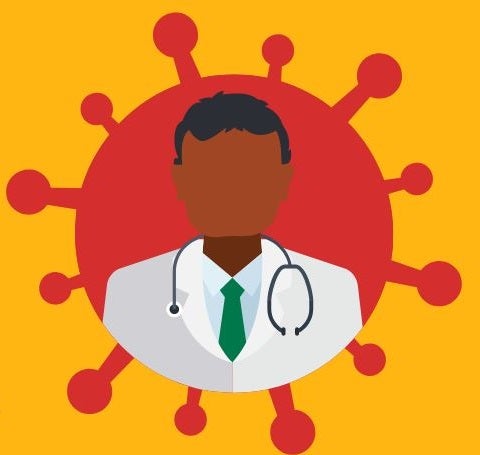Behavioral Science-Informed Guide and Tip Sheets Support Response to COVID-19 in Low-and-Middle-Income Countries

In many low- and middle-income countries, COVID-19 poses a major threat to health and economic outcomes. Many countries have limited health system capacity to cope with increased caseloads and fewer resources to protect against the impacts of lockdowns and a global economic slowdown. In South Africa and other countries with high HIV prevalence, the crisis also poses new challenges to ongoing efforts to combat HIV/AIDS.
As part of their work with the nudge unit they have launched in South Africa (Indlela: Behavioural Insights for Better Health), CHIBE Associate Directors Harsha Thirumurthy, PhD; and Alison Buttenheim, PhD, MBA; and Project Managers Laura Schmucker, MPH; and Noora Marcus, MA, have developed several resources that provide guidance to low-and middle-income country (LMIC) governments and communities as they navigate the COVID-19 pandemic.
Find three documents below: a guide to HIV care continuity led by the Indlela team, and tips for physical distancing and communication during COVID-19, created in collaboration with Indlela, ideas42 and the South African Labour and Development Research Unit SALDRU.
Behavioural Interventions and Nudges to Support HIV Care Continuity during COVID-19: A guide for programs, policymakers and researchers
This guide for programs, policymakers, and researchers acknowledges that the pandemic has complicated ongoing efforts to combat HIV/AIDS. For each behavioral challenge (e.g. health care workers’ fears of going to work because of the risk of COVID-19 transmission or health care workers’ psychological and financial stress, which can affect decision-making and lead to burnout), this guide offers potential solutions rooted in behavioral science.
Behavioral Science Tips for Physical Distancing
This tipsheet offers concrete ways that governments and institutions can ensure individuals participate in physical distancing. One recommendation, for example, is to lower the costs associated with physical distancing by increasing subsidies for essentials such as cooking gas or food rations. *Also available in French, Spanish and Portuguese language versions.
Behavioral Science Tips for COVID-19 Communications
How can you ensure individuals understand and follow guidance necessary for COVID-19 mitigation? Communication is key. This tipsheet highlights several tools and methods to make sure information is easily communicated to the public. For example, it suggests making the desired behavior simple and easy to do, delivering messages that are catchy and memorable, and appealing to people’s social nature. *Also available in French and Spanish language versions.
Indlela recently released its June newsletter that describes its goals, progress, and team and talks more about these resources and a recent behavioral economics-focused webinar; you can also sign up for the quarterly newsletter here.
The CHIBE global health team encourages organizations that are engaged in health service delivery or are supporting the COVID-19 response to contact them to discuss collaborations.